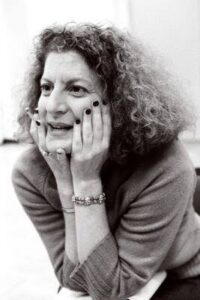Sincere thanks to Alison for allowing us into her world, and for reaffirming the importance of making ‘good trouble’.
Would you please tell us a little about your writing process?
I read a lot of poetry in order to “flip the switch” in my brain from prose to poetry. I also try to write behind my own back, that is, I don’t sit down to a three-hour writing session necessarily. I just do as much as I can whenever I can, for as long as my limited attention will allow me.
How do you believe a writer improves? Practice? Mentors? Reading everything?
Practice and reading have taken me a long way. I’ve also benefitted a lot from the friendship of other writers who exchange critiques with me. Mentorship is great if you can find it and afford it. I don’t go to festivals for the most part–unless I’ve been invited to teach there– because they’re expensive and I am shy.
What motivated / motivates you to write?
A burning desire to communicate my experience; to be seen and known; to connect with others; to make something beautiful and enduring.
Do you enjoy writing?
Sometimes.
What are the most important steps an amateur writer can take?
Read read read–great literature and contemporary writers–and find a community of other writers, either by taking classes or joining a writer’s group. Writers need each other. We need someone to look at our stuff and critique it, someone to help us keep going when the path gets lonely. And deadlines and accountability help, too!
What is the best piece of advice you have received? Or, what is the best piece of advice you would offer an aspiring writer?
The best piece of advice I received as a student poet in college was from Stratis Havarias, a poet who told me I should edit all my poems down by 20%. That advice is good for me, because I am an over-writer–always have been. It might not work so well for everyone.
Who would you say are your literary forebears? Who have you learned the most from?
So many! Grace Paley, Tillie Olsen, Anne Sexton, Sylvia Plath, Langston Hughes, Lucille Clifton, Nikki Giovanni, Terrance Hayes, Diane Seuss, Sharon Olds, Lidia Yuknavitch, Walt Whitman, Allen Ginsberg, Frank O’Hara, Tony Hoagland, Marie Howe, Ellen Bass, Dorianne Laux, Deborah Levy, and the list goes on and on…
What do you believe is the function of your art?
Right now it’s to make “good trouble” as John Lewis talked about.
What is the role of the writer in society?
To point the flashlight and illuminate the unseen, the denied, the willfully forgotten. To bear witness.
What are the major benefits of being a writer?
Friendships with other writers.
Are there any downsides to being a writer?
Lack of getting paid adequately for many hours of hard work, especially as a poet.
Alison Luterman’s four books of poems include The Largest Possible Life; See How We Almost Fly; Desire Zoo; and In the Time of Great Fires. She has published poems in The New York Times Magazine, The Sun Magazine, Prairie Schooner, Nimrod, Rattle, The Atlanta Review, Main Street rag, and many other journals and anthologies. Two of her poems are included in Billy Collins’ Poetry 180 project at the Library of Congress. Five of her personal essays have been collected in the e-book Feral City, published at www.shebooks.net and available on audible.com. She has also written half a dozen plays, including several musicals. She has taught and/or been poet-in-residence at California Poets in the Schools, New College in San Francisco, Holy Names College in Oakland, The Writing Salon in Berkeley, at Esalen and Omega Institutes, at the Great Mother and New Father Conference, and at various writing retreats, workshops and conferences all over the country. She is currently studying singing and writing a musical. Check out her website www.alisonluterman.net for more information.

